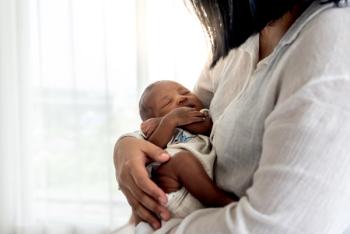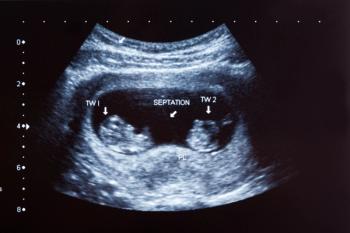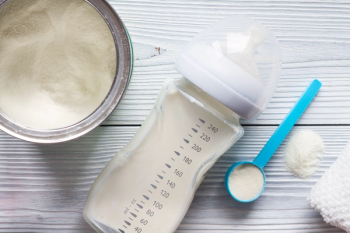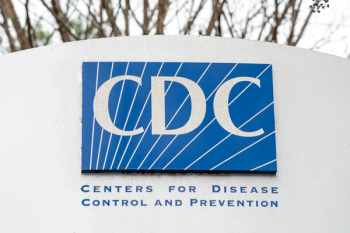
A comprehensive cohort study explored the impact of inactivated COVID-19 vaccines administered within 3 months before conception, revealing reassuring findings that neonatal outcomes, including preterm birth and NICU admission, remain unaffected.


A comprehensive cohort study explored the impact of inactivated COVID-19 vaccines administered within 3 months before conception, revealing reassuring findings that neonatal outcomes, including preterm birth and NICU admission, remain unaffected.

A recent retrospective cohort study found that administering antenatal corticosteroids from 34 to 36 weeks of gestation did not decrease composite neonatal respiratory morbidity in twin pregnancies, challenging conventional practices for this high-risk population.

Explore the findings of a recent study, revealing that enrollment in the Special Supplemental Nutritional Program for Women, Infants, and Children may influence breastfeeding decisions, shedding light on disparities and suggesting the need for targeted initiatives to enhance breastfeeding rates among low-income mothers.

The federal agencies announced the availability of additional doses of nirsevimab-alip (Beyfortus; Sanofi) for infants at high-risk of infection.

Discover how a mother's balanced diet during the periconceptional period influences early childhood wheezing patterns, revealing potential avenues for reducing asthma-like symptoms in offspring.

Robert H. Hopkins, Jr, MD, discusses the importance of pregnant women receiving vaccines against respiratory diseases to protect themselves and their infants.

A 755% increase in reported cases since 2012 highlights the need for timely testing and treatment to prevent maternal and infant health risks.

A recent study in JAMA Network Open investigates the impact of extrauterine placental perfusion versus delayed cord clamping on hematocrit levels in newborns, shedding light on potential alternatives for optimizing infant outcomes during birth.

Review some of the top stories from the Contemporary OB/GYN website over the last week, and catch up on anything you may have missed.

In a recent study, physical abnormalities were seen among children born from pregnancies complicated by fentanyl.

In a recent study, participants at different levels of socioeconomic disadvantage had varying associations between maternal cortisol production and fetal amygdala development.

A recent study was highlighted at the 2023 American Academy of Pediatrics National Conference & Exhibition that shed light on the long-term impact of very preterm birth on the health-related quality of life (HRQOL) of infants and identified key determinants.

At IDWeek 2023, a presentation sharing the latest news in RSV vaccines.

In a recent study, cell-free DNA screening had high rates of detecting trisomy 21 in twin gestations.

Through a randomized, multicenter, open-label, controlled study, investigators determined there were no suggestions of important differences for very preterm infant body composition when comparing an exclusive human milk diet to a diet containing cow milk products.

In a recent study, the risk of cerebral palsy was slightly increased among children conceived in the winter and spring compared to summer.

Ahead of the first fall and winter virus seasons in which vaccines are available for COVID-19, influenza, and respiratory syncytial virus (RSV), the Centers for Disease Control and Prevention is recommending Pfizer’s maternal vaccine to protect newborns from severe RSV illness.

In a recent study, women with a history of dysmenorrhea were at a significantly increased risk of endometriosis.

Francheska M. Merced-Nieves, PhD, Assistant professor, Departments of Pediatrics and the Institute for Exposomic Research of Environmental Medicine & Public Health, Icahn School of Medicine at Mount Sinai, explains the associations prenatal exposure to a metal mixture and the potential negative effects for the infant.

In a recent study, ovarian tissue cryopreservation was indicated as viable for preventing premature ovarian insufficiency in girls and young women receiving gonadotoxic therapies.

The federal agency says infants of a certain age should receive this monoclonal antibody to protect against the virus.

In a recent study, increased rates of precocious puberty were observed during the COVID-19 pandemic compared to prior years.

Sean Esplin, MD, maternal-fetal medicine physician, senior medical director for women’s health, professor, Department of OB/GYN, University of Utah, discusses his presentation on advanced fetal heart rate monitoring interpretation at the 2023 Society of OB/GYN Hospitalists Annual Clinical Meeting in Chicago, Illinois.

In a recent study, infants born to mothers with excessive gestational weight gain at gestational diabetes mellitus diagnosis had increased risks of large for gestational age and macrosomia.

In a recent study, improved neurodevelopmental outcomes were seen in children aged 2 years whose mothers received a Mediterranean diet or mindfulness-based stress reduction intervention during pregnancy.